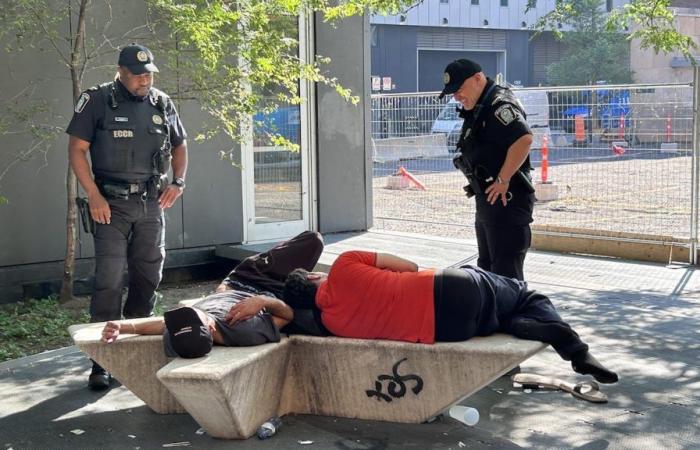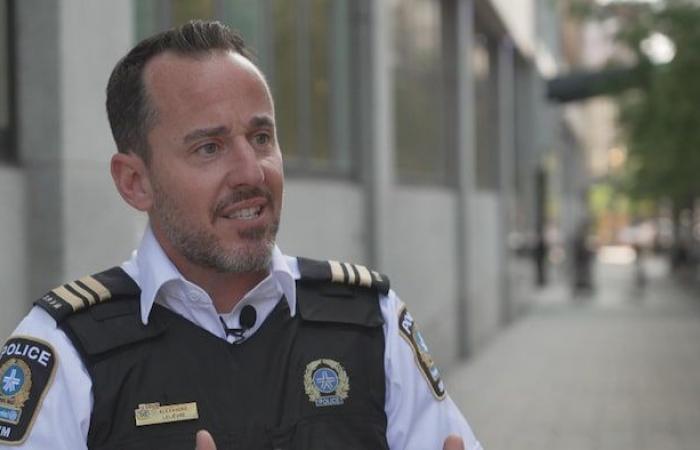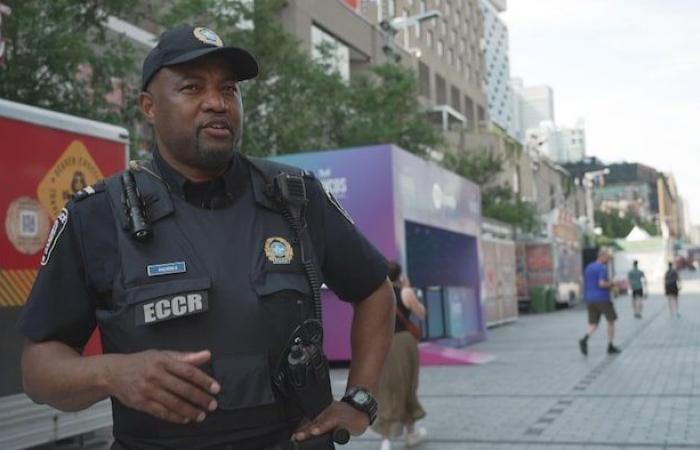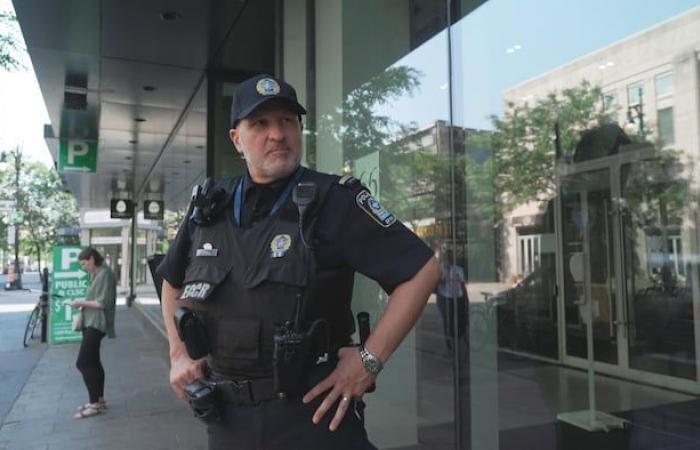The Montreal City Police Service (SPVM) intends to finance from its budget the deployment in September of 18 police officers who have been working since 2021 within the Community Consultation and Rallying Team (ECCR), Radio-Canada has learned . The ECCR lost its provincial funding earlier this year.
The management of SPVM will therefore keep among its troops these police officers who intervene with people in situations of vulnerability and homelessness.
Dozens of community organizations in Montreal had denounced the end of the provincial subsidy of $7.4 million over three years, announced by Quebec last March.
THE SPVM will therefore add duo patrols on foot in nine neighborhood stations, including in less central sectors such as Notre-Dame-de-Grâce, Ahuntsic and Anjou.
Davide Gentile’s report
September, our police ECCR will be deployed in very specific neighborhood stations to continue doing what they were doing and using the same approach with partners, citizens”,”text”:”From September 2, our ECCR police officers will be deployed in very specific neighborhood posts to continue doing what they were doing and using the same approach with partners, citizens”}}”>From September 2, our police ECCR will be deployed in very specific neighborhood posts to continue doing what they were doing and to use the same approach with partners, citizens
explains Alexandre Lelièvre, commander of the prevention and urban security division of the SPVM.
To date, the teams ECCR worked mainly in downtown and eastern Montreal.
We can tell you that vulnerable populations are everywhere in Montreal and the need to bring these populations together, to be able to create contacts with these people and refer them to the right place, is everywhere in Montreal.
specifies Commander Lelièvre.
Open in full screen mode
Alexandre Lelièvre, commander of the prevention and urban security division of the SPVM
Photo: Radio-Canada
The phenomena, homelessness, vulnerability, are now almost everywhere, in all neighborhoods of Montreal, something we did not see about five or ten years ago.
As Commander Lelièvre recognizes, I believe that we managed to get the most out of what we could do with this end of funding, that is to say, perpetuate the practices that we have put in place for three years, then make it accessible to all patrol police officers in the field
.
THE SPVM has around 4,000 police officers, including around forty foot patrollers.
Commander Lelièvre’s division includes the Mobile Psychosocial Emergency Intervention Team (ESUP), the Mobile Homeless Reference and Intervention Team (EMRII) and joint indigenous patrols.
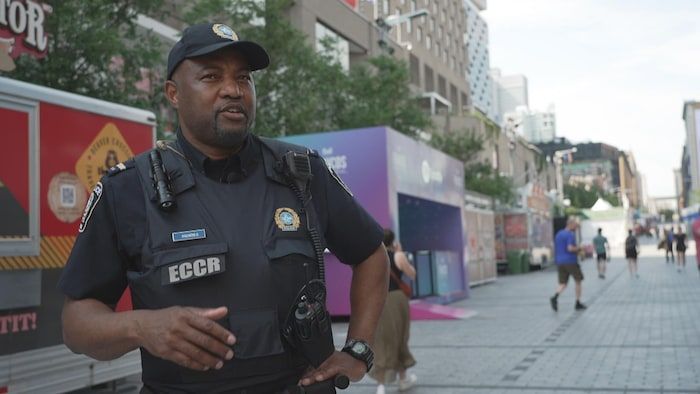
Open in full screen mode
Ogino Hyacinthe, supervising sergeant of the ECCR at the SPVM
Photo: Radio-Canada
Prevention approach
During our visit to the city center, a duo of police ECCR patrolled Sainte-Catherine Street near the Quartier des spectacles.
Quickly, an intervention was required with two people sleeping in a public place.
Subsequently, a visit to the nearby Sustainable Development Center allowed us to learn more about misdeeds and incivility in the neighborhood.
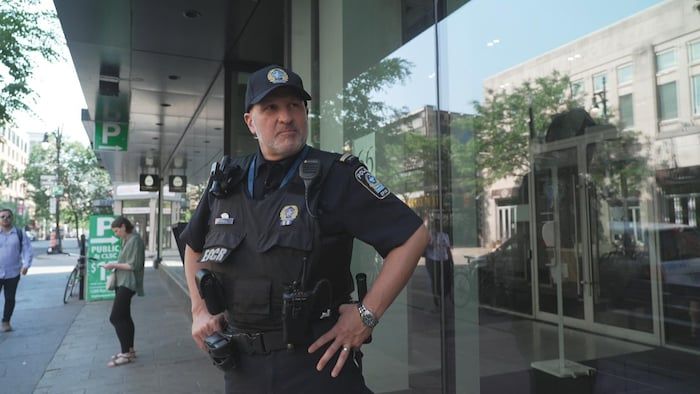
Open in full screen mode
Sergeant Laurent Gingras, from the SPVM ECCR team
Photo: Radio-Canada
ECCR. Our objective, the rest of us, is really to see people who leave in a vulnerable situation, to try to bring them back to the network of organizations, or to see if we can direct them.”,”text”:”We is in the audience, reports Sergeant Laurent Gingras, from the ECCR team. Our objective, the rest of us, is really to see people who leave in a vulnerable situation, to try to bring them back to the network of organizations, or to see if we can direct them.”}}”>We are in the audience, points out Sergeant Laurent Gingras, from the team ECCR. Our objective, the rest of us, is really to see people who leave in a vulnerable situation, to try to bring them back to the network of organizations or to see if we can direct them.
His partner Ogino Hyacinthe, supervising sergeant, adds this: We are caring people: going to see people who appreciate our visit, who appreciate the service we give them, that makes us feel good. We all joined the police force to help people.

